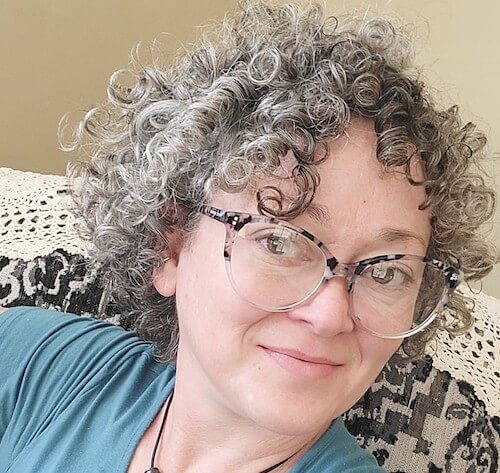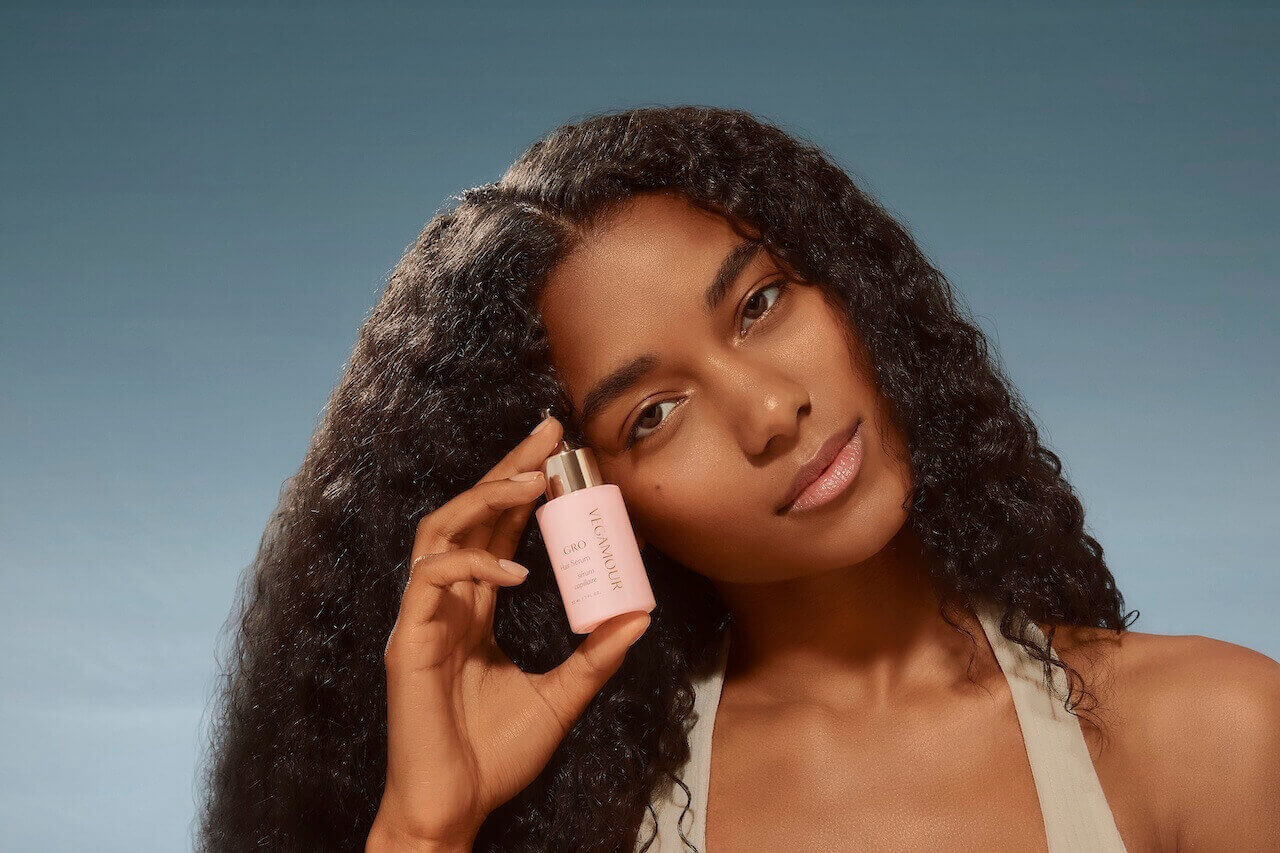Is there a difference between white hair and gray hair? What happens to make your hair turn gray or white? Can you stop your hair from losing its color? Today, we're tackling those questions for you.
VEGAMOUR spoke with a hair expert to determine what makes gray and white hairs different. Plus, find out what plant-based products you can use for your gray hair.
#include-related-slider#
White and Gray Hair
Tiny pigments called melanin give you your natural hair color, and a loss of melanin is what causes your hair to turn gray or white.
VEGAMOUR spoke Dr. Harikiran Cheruki, medical head of ClinicSpots about the biological differences between white versus gray hair.
What Causes White Hair?
"White hair is an abnormally light-colored strand of hair caused by a loss of pigment or melanin in the hair follicle," he said. "This condition is called leukotrichia and it usually happens when someone goes through extreme stress or illness that affects their production of melanin."
What Causes Gray Hair?
Dr. Cheruki said that gray hair occurs when natural aging causes the production of melanin to slow down. "As we age, our bodies produce less and less melanin over time, resulting in strands of gray or silver-colored hair mixed in with darker strands," he said.
Though hair graying is something we all face as we age, our family history, genetics and some environmental factors can all play a role.
Shop: GRO AGELESS Collection for Graying Hair
The Role of Melanocyte Cells
Deep in your skin's epidermis, a region called the neural crest produces melanocyte cells. The primary activity of the melanocytes is to produce melanin. This melanin comes in two types.
- Pheomelanin pigments: Produce lighter natural pigmentation for various shades of red and blonde hair
- Eumelanin pigments: Produce darker pigmented hair like brown and black hair.
Note that naturally dark hair may contain a blend of eumelanin and the warmer-based pheomelanin pigments, creating warm dark hair tones.
As the melanocytes begin to age (or are compromised by other factors like your health or environment), they make these melanin pigments slower or they stop producing altogether. When they slow down, there is still some pigment that blends with the remaining melanin in your hair creating various shades of gray, which is influenced by whether you have naturally darker hair or a lighter natural color.
When melanocytes stop producing pigments altogether, the result is completely white hair strands. It's possible to have both of these natural processes going on at the same time for a blend of white and gray hair.
There are lots of reasons the melanocytes slow down their production of melanin or halt their melanin-producing activities completely:
- Medical conditions or melanin disorders
- Environmental stress (UV rays, pollution, etc.)
- Poor scalp health
- Genetics
- Stress
Read: What's the Average Age for Getting Gray Hair?
Using Hair Color to Cover Up White or Gray Hair
Growing older does make hair lose its color; this is simply a part of aging. However, your natural color combined with new gray or white strands might not blend as well as you'd like. For many people, hair color is the answer.
Gray hair has a different texture which can be softened a bit with permanent hair dyes. Hair colors offers us many shades to choose from so we can develop a whole new signature look with artificial hair color pigment that mimics our natural pigmentation.
You can choose to add highlights or lowlights with different shades of permanent hair color, keeping some of your original color. Permanent color works for both white hair and gray hair.
Related: These Are the Best Ways to Cover Gray Hair on Dark Hair
How to Protect Hair from Premature Graying
Your family tree may be sprinkled with salt and pepper or have only the occasional head of brilliant white hair, but family history isn't the only influence. The environment you are exposed to as you age also plays a role, which means you can take measures to protect your hair pigments a little longer. Here's how:
- Reduce stress. Stress plays a major role in how fast your hair ages.
- Protect your hair from the sun's UV rays, which can break down your hair's melanin.
- Incorporate foods into your diet that contain iron, vitamin D and vitamin B-9, which can all help delay gray hair.
More: 4 Foods to Eat to Delay Gray Hair, According to a Clinical Nutritionist
Can You Slow Down the Hair's Graying Process?
We all kind of expect our hair to turn white with old age, but what if our hair starts graying or turning white much earlier than we want? If our signature blonde hair begins to show sprigs of white or gray early, we may wonder if there's anything we can do about it. How can we help our hair stay healthy and melanin-rich as long as possible?
Thankfully, some of that loss of pigment is not only preventable but it's also reversible.
GRO AGELESS: Target Grays From the Inside Out
Not only can you reduce the appearance of your grays but you can also delay the process of new hairs that are set to turn gray with VEGAMOUR's GRO AGELESS Collection. Furthermore, you may be able to restore some of the natural color in your hair. This is great news for those of us who want to grow older gracefully!
GRO AGELESS has a serum and a supplement that you can combine:
-
GRO AGELESS Anti-Gray Hair Serum- Reduce the appearance of gray hair on new hair growth with this serum that's packed with peptides, glycoproteins and vitamins B3, B5, B6 and E. Based on a three-month consumer study of key ingredients, 64% saw less gray hair in as soon as 90 days. It's ideal for those who have moderate levels of gray hair and are looking to renew color and shine to their strands.
-
GRO AGELESS Gray Delay™ Hair Supplement - Prevent premature grays and delay future grays with this supplement formulated with a proprietary blend of bioavailable adaptogens and minerals that also support collagen-rich shine and healthy roots. It's ideal for those who are currently seeing only a few grays or no grays yet.
You can use the supplement and serum in addition to your regular hair care regimen and they are safe for all types and textures of hair, including color-treated hair.
Related: How to Stop Gray Hair Naturally
Aging With Grace
Yes, your hair's loss of melanin, resulting in gray or white hair is a normal part of the aging process. However, you don't have to remain passive as it happens. You can help your hair not age as quickly by reducing stress, eating gray-delaying foods and wearing a hat with UV protection whenever you spend time in the sun. You can also use products that pair perfectly with gray strands. Taking these steps will allow your hair to age gracefully on your own terms!
More From VEGAMOUR
Photo credit: cottonbro studio/Pexels





















